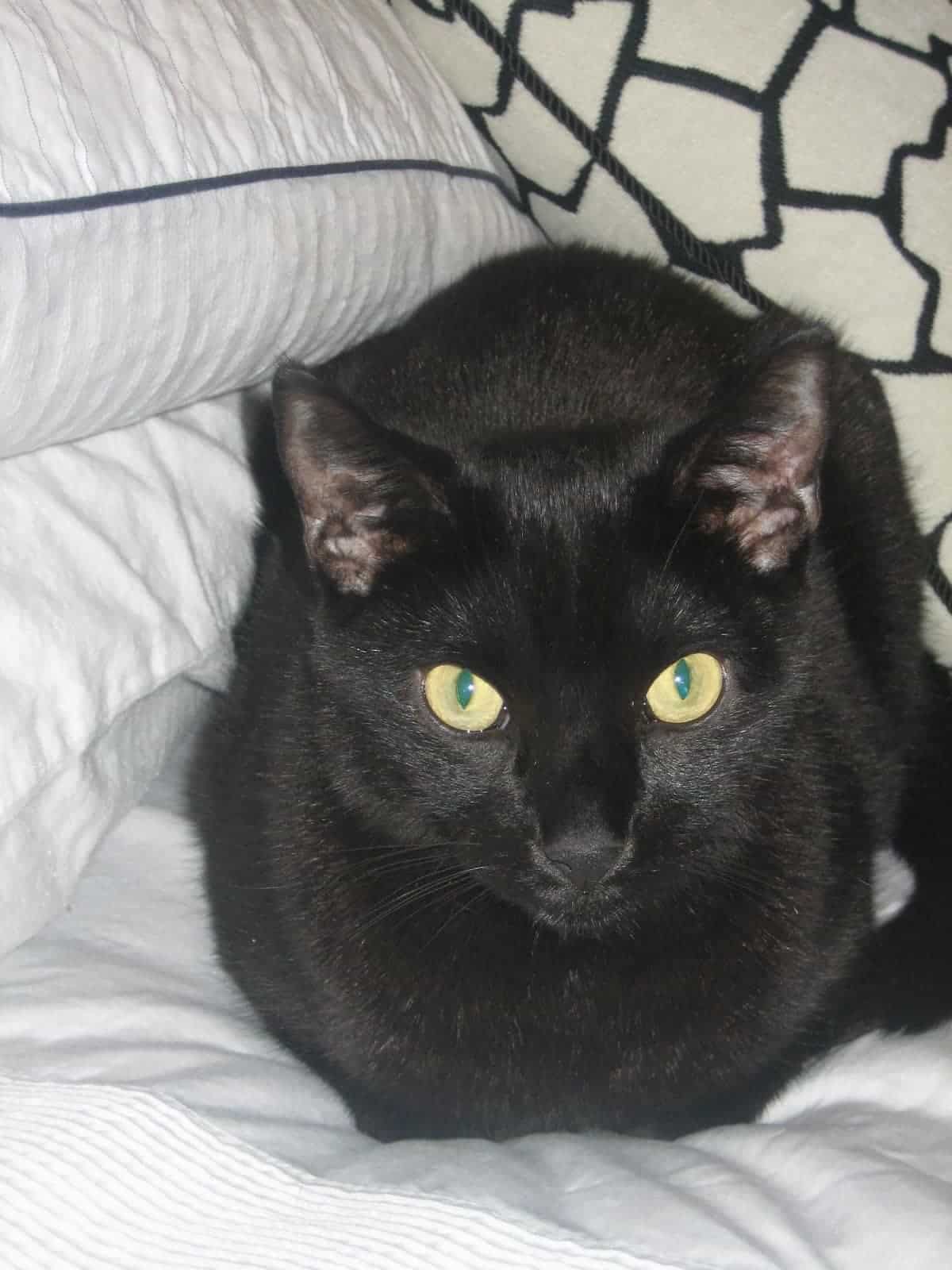Diarrhea is defined as a change in the frequency, consistency or volume of stools. It is the most common sign of disease of the small intestine in cats and dogs. Abnormal intestinal absorption of nutrients is usually the underlying cause which can occur because of a variety of infectious, toxins and/or dietary factors.
SYMPTOMS
* Large volumes of stool
* Loose, watery feces
CAUSES
Viral infections are the most common cause of diarrhea in cats
* Feline Distemper virus
* Feline Leukemia virus
* Feline Infectious Peritonitis (FIP)
* Dietary changes – milk intolerance which is the inability to digest the milk sugar lactose is extremely common in cats, dogs and people. The enzyme lactase which is necessary to digest the milk decreases after the first few weeks of life in cats and dogs. The result is diarrhea because of the inability to tolerate milk.
* Roundworms & Hookworms can cause diarrhea in kittens
* Toxins – Tylenol in cats is very dangerous
* Inflammatory Bowel Disease is the major cause of chronic diarrhea and vomiting in cats and dogs.
* Bacterial Infections such as Salmonella are a risk in cats that hunt birds
WHAT YOU AND YOUR VET CAN DO
* Diarrhea lasting 24 hours or less in an otherwise healthy cat can be beneficial to cleanse the body
* Diarrhea lasting over 24 hours or occurring in a sick cat who is for example not eating, depressed and/or vomiting can cause life threatening dehydration and requires veterinary intervention.
* Routine Diagnostics generally include a fecal exam to check for worms, blood tests for viral infections, and X-rays to check for foreign items eaten as well as tumors.
NOTE:
Water is the single most important nutrient required to prevent dehydration with
diarrhea.
HOME REMEDY
For simple diarrhea lasting less than 24 hours in an otherwise healthy cat, withhold
food 12 to 24 hours but provide fluids to prevent dehydration.
Offer Chicken Broth. To make: use ¼ cup chicken broth or pureed chicken, mix with two tablespoons of water and 1 teaspoon of yogurt and warm to room temperature.
Many cats enjoy this.
TIP: Avoid Kaopectate and Pepto-Bismol in cats. Pepto-Bismol contains aspirin which is toxic to cats.
* Feed small amounts of a bland food (not spicy- spices can irritate the stomach.
* Bland foods include boiled chicken and rice, strained lamb baby food, uncreamed cottage cheese.
* Add Fiber to the diet which adds bulk to the stool and helps solidify the feces.
Fiber Sources include
* Psyllium
* Slippery Elm
* Vegetables
* Plain Pumpkin Filling
NOTE: Digestive Enzymes replace bacteria lost in diarrhea which are necessary to digest and absorb food. Yogurt contains “Acidophyllus” which are live cultures of bacteria.
L-GLUTAMINE is an essential nutrient for pets and is available at health food stores. A 2% solution of L-Glutamine in water can be given by mouth under your vet’s advice.
Fructo Oligosaccharides (FOS) – IAMS diets and the Innovative Veterinary Hi Factor Diet have “FOS” in them. FOS are carbohydrates or fruit sugars attached to glucose molecules. They are digested in the colon, which is the large intestine. This is different than most other sugars which are digested in the small intestine. FOS help to eliminate bad bacteria and promote the growth of beneficial bacteria in the large intestine.
NOTE – Organic yogurt with live cultures contains bacteria which are necessary to digest and absorb food. Offer 1 teaspoon 2 to 3 times a day.
COMPLEMENTARY THERAPY
Homeopathic Remedy
* Natrum Muriaticum (6x) (salt, sodium chloride)
* Use for longer lasting diarrhea in cats especially those that are uncomfortable and sit hunched up.
COMPLEMENTARY THERAPY
HOMEOPATHIC
Natrum Muriaticum (6x): 1 pellet every 4 hours by mouth for 3 treatments, wait 24 hours, if cat is not better, try another remedy. No food 10 minutes before or after treatment.
HERBAL REMEDY
Slippery Elm Powder: Mix 1 tsp of Slippery Elm powder with 1 cup cold water, bring to boil, and then simmer 3 minutes, cool to room temperature, and give ½ tsp every 4 hours by mouth.










We have also found cats are susceptible to wheat and gluten intolerance. Again symptoms are liquid diarrhea. Treatment is to feed foods without gluten. IAMS Hairball works for us.
I have also had success with feeding fibrous vegetables like carrots